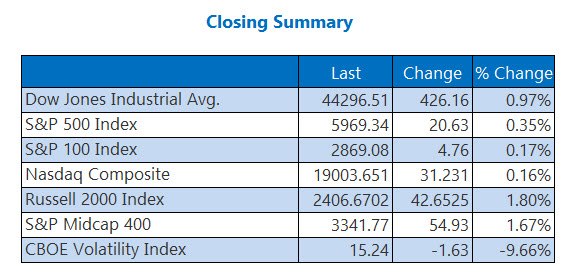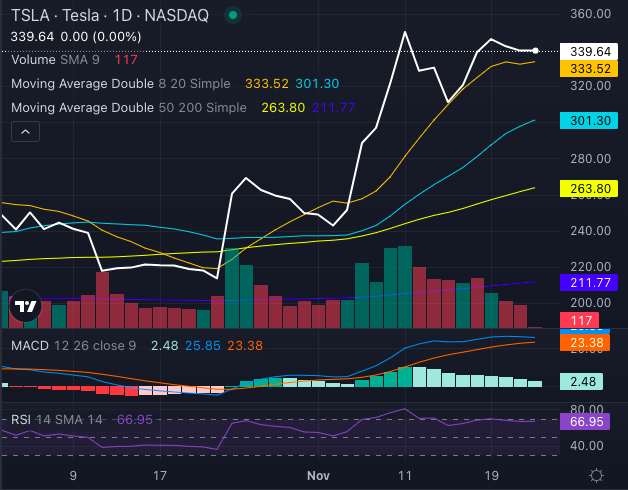In a bold and unprecedented move, Nippon Steel, the Japanese steel giant, has made waves in the industry with its recent acquisition of U.S. Steel for a staggering $14.9 billion.
This all-cash transaction represents a significant premium of 40% to U.S. Steel's closing price, showcasing Nippon Steel's determination to expand its global presence. The strategic decision to venture into international markets aligns with the challenges presented by a shrinking population crisis in Japan.
Additionally, the anticipated surge in U.S. steel demand due to the Infrastructure Investment and Jobs Act adds further weight to the significance of this acquisition. However, this triumph was not without obstacles, as U.S. Steel had previously rejected bids from other industry players.
As the controversy surrounding this acquisition unfolds, both Nippon Steel and U.S. Steel remain confident in their vision for the future, despite concerns raised by unions, politicians, and bipartisan opposition.
Key Takeaways
- Nippon Steel's acquisition of U.S. Steel for $14.9B in an all-cash transaction represents a significant expansion of their global footprint.
- The acquisition comes amidst a bidding war and regulatory scrutiny, with Nippon Steel's offer being more than double the previous bid from Cleveland-Cliffs.
- The acquisition has sparked controversy and opposition, with unions, politicians, and bipartisan support expressing concerns about national security interests and foreign takeovers.
- Despite the potential for regulatory issues, the management teams of both companies believe there will be no major obstacles to the acquisition.
Acquisition and Expansion
In its latest bold move, Nippon Steel has embarked on a significant acquisition and expansion strategy. The Japanese firm has acquired U.S. Steel for $14.9B in an all-cash transaction, representing a 40% premium to U.S. Steel's closing price.
This acquisition aims to expand Nippon Steel's global footprint and tap into the growing demand for steel in the United States. The move also reflects Japanese firms' pursuit of international growth opportunities amidst a shrinking domestic population crisis.
Nippon Steel's competitive advantage lies in its strong financial position and technological expertise, which will enable it to capitalize on the expected increase in U.S. steel demand driven by the Infrastructure Investment and Jobs Act.
This acquisition has significant global market implications, as it reshapes the competitive landscape and strengthens Nippon Steel's position as a global steel leader.
Bidding War and Regulatory Scrutiny
Multiple potential buyers engaged in a bidding war for U.S. Steel, with Nippon Steel's offer of $14.9B in an all-cash transaction, more than doubling the previous bid.
This bold move by Nippon Steel has significant implications for competition in the industry. The acquisition of U.S. Steel by a foreign producer like Nippon Steel could potentially impact the competitive landscape, as it consolidates market share and strengthens Nippon Steel's global footprint.
Additionally, the bidding war and the proposed acquisition will likely attract regulatory scrutiny. Unions and politicians are urging regulators to assess the national security interests and the potential impact on jobs and the domestic steel industry.
It remains to be seen how the regulatory authorities will respond to this acquisition and whether any conditions or restrictions will be imposed to ensure fair competition and protect national interests.
Controversy and Opposition
The acquisition of U.S. Steel by a Japanese producer has ignited controversy and faced significant opposition. The move has raised concerns over foreign ownership in the industry and its impact on industry dynamics.
To grab the attention of the audience, here are two sub-lists that highlight the key points:
- Concerns over foreign ownership:
- United Steelworkers, a major labor union, is urging regulators to assess national security interests.
- Senators from Pennsylvania and Ohio have expressed disapproval of the foreign takeover.
- Bipartisan support against the acquisition has emerged, reflecting the broader concerns over foreign control of critical industries.
- Impact on industry dynamics:
- The acquisition by Nippon Steel will reshape the competitive landscape of the steel industry, potentially leading to market concentration.
- There are concerns that foreign ownership may result in the loss of jobs and the erosion of domestic manufacturing capabilities.
- Management teams involved in the deal believe that there will be no major regulatory issues, but opposition groups are pushing for closer scrutiny.
This controversy and opposition surrounding the acquisition highlight the complex dynamics at play in the steel industry and the broader concerns over foreign ownership.
Apple's Sales Halt and Market Cap
As a result of a recent patent dispute, sales of Apple Watch models in the U.S. have been halted, impacting the company's market cap and raising concerns within the tech industry. The International Trade Commission ruling specifically affects watches with a blood oxygen feature. This development has the potential to significantly impact Apple's reputation and raise questions about the company's legal standing in the industry.
| Impact on Apple's Reputation | Potential Legal Implications for Apple |
|---|---|
| The sales halt could lead to a loss of consumer trust and confidence in Apple's ability to deliver innovative and reliable products. Customers may question the company's commitment to protecting intellectual property rights. | Apple may face potential lawsuits from the patent holder and could be required to pay damages or royalties for infringing on the patent. The legal implications could extend beyond the patent dispute, potentially affecting Apple's overall product strategy and future developments. |
Apple's market cap, which recently reached $3 trillion, is likely to be impacted by the halt in sales. Investors may react negatively to the news, leading to a decline in Apple's stock price. However, the long-term implications will depend on how Apple resolves the patent dispute and its ability to regain customer trust. Despite the setback, Apple's strong growth and monetization strategies continue to fuel optimistic forecasts, with some analysts projecting a $4 trillion market cap by the end of 2024.
Nikola Founder's Sentencing and Company's Performance
Trevor Milton's sentencing and Nikola's performance have garnered significant attention within the industry, shedding light on the consequences of his actions and the company's current state. This event has had far-reaching repercussions, impacting the electric vehicle (EV) sector and investor confidence.
The following key points highlight the gravity of the situation:
- Nikola founder's fraud:
- Milton's conviction for securities and wire fraud has exposed the deceptive practices that plagued Nikola's early days.
- He falsely represented the company's technological capabilities and production progress, leading to inflated stock prices and investor losses.
- Industry repercussions:
- The Nikola scandal has raised concerns about the credibility and transparency of the entire EV industry.
- Investors and stakeholders are now more cautious when assessing the claims and promises made by emerging EV companies.
The fallout from Milton's actions and Nikola's underperformance has underscored the importance of integrity and accountability in the business world. As the EV sector continues to grow, companies must prioritize ethical practices to maintain the trust of investors and consumers.
Impact on National Security
Nippon Steel's acquisition of U.S. Steel raises concerns about the potential impact on national security. The deal, valued at $14.9 billion, has sparked national security concerns and potential regulatory challenges. Critics argue that foreign ownership of a major U.S. steel producer could compromise the country's ability to meet its defense needs and threaten critical infrastructure. To provide a visual representation of these concerns, the following table highlights the key issues:
| National Security Concerns | Potential Regulatory Challenges |
|---|---|
| Foreign ownership of a major U.S. steel producer | Potential compromise of defense needs |
| Threat to critical infrastructure | Regulatory scrutiny and assessment of national security interests |
These concerns have prompted unions, politicians, and industry stakeholders to call for regulatory scrutiny of the acquisition. While management teams involved in the deal believe there will be no major regulatory issues, the opposition remains steadfast in their national security concerns and the need for thorough assessment before finalizing the transaction.
Future Outlook and Industry Implications
The future outlook and industry implications of Nippon Steel's acquisition of U.S. Steel are generating significant interest and concern among stakeholders. This bold move by Nippon Steel is expected to disrupt the industry and intensify global competition.
The acquisition will reshape the steel industry landscape, consolidating market power and potentially leading to increased pricing pressure. Competitors will need to reassess their strategies and consider potential partnerships or acquisitions to stay competitive.
Nippon Steel's expanded global footprint will position them as a formidable player in the international steel market. Other global steel producers may face intensified competition and the need to enhance their capabilities to maintain market share.
The implications of this acquisition extend beyond the companies involved, as it could have far-reaching consequences for the entire steel industry. Stakeholders are closely monitoring these developments, as they anticipate significant changes in market dynamics and increased competition on a global scale.
Frequently Asked Questions
How Did the Acquisition of U.S. Steel by Nippon Steel Come About?
The acquisition of U.S. Steel by Nippon Steel came about through an acquisition process involving multiple potential buyers. This move has had a significant impact on the industry, attracting opposition and regulatory scrutiny due to its foreign takeover nature.
What Were the Other Bids Made for U.S. Steel During the Strategic Review Process?
During the strategic review process, U.S. Steel received bids from Cleveland-Cliffs, ArcelorMittal, and Nucor. This bidding competition demonstrates the interest in acquiring U.S. Steel and highlights the potential impact on industry dynamics.
What Concerns Have Been Raised by Unions and Politicians Regarding the Acquisition?
Union concerns and political opposition have been raised regarding the acquisition of U.S. Steel by Nippon Steel. Unions are urging regulatory scrutiny to assess national security interests, while senators from Pennsylvania and Ohio express disapproval of the foreign takeover.
Why Is the Acquisition of U.S. Steel by a Japanese Producer Sparking Controversy and Opposition?
The controversial acquisition of U.S. Steel by a Japanese producer has sparked opposition due to concerns over national security interests. Unions, politicians, and bipartisan support have expressed disapproval, calling for regulatory scrutiny of the foreign takeover.
How Does the Patent Dispute Affect Apple's Sales of Watch Models and Its Market Cap?
The patent dispute has led Apple to halt sales of certain Watch models in the U.S., impacting their sales. However, this setback is not expected to significantly impact Apple's optimistic forecast for reaching a $4T market cap by 2024.



